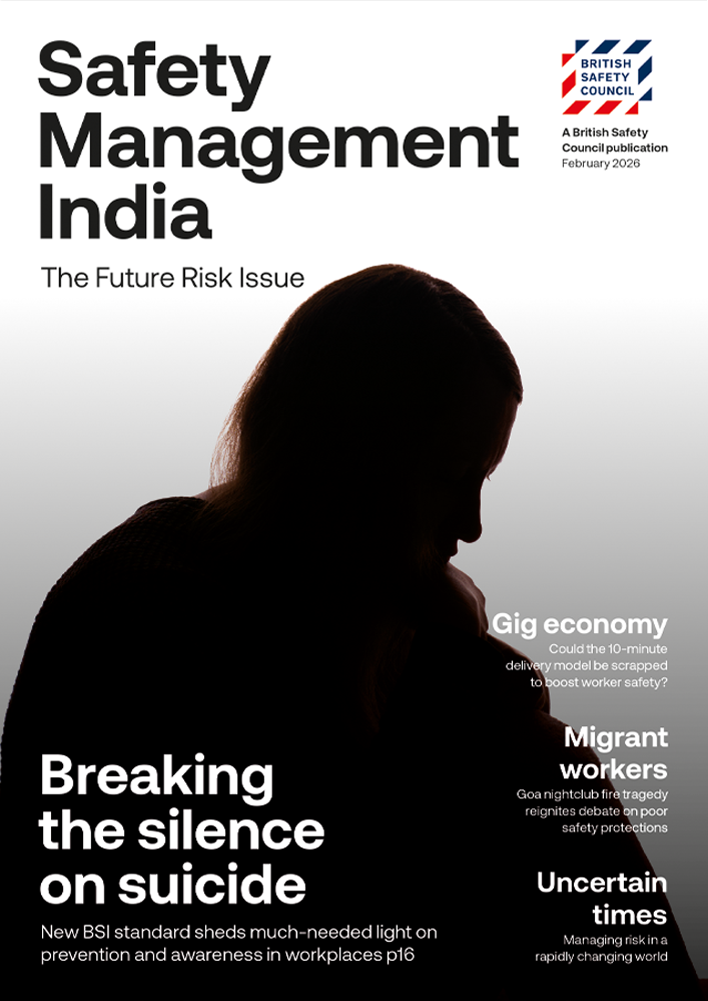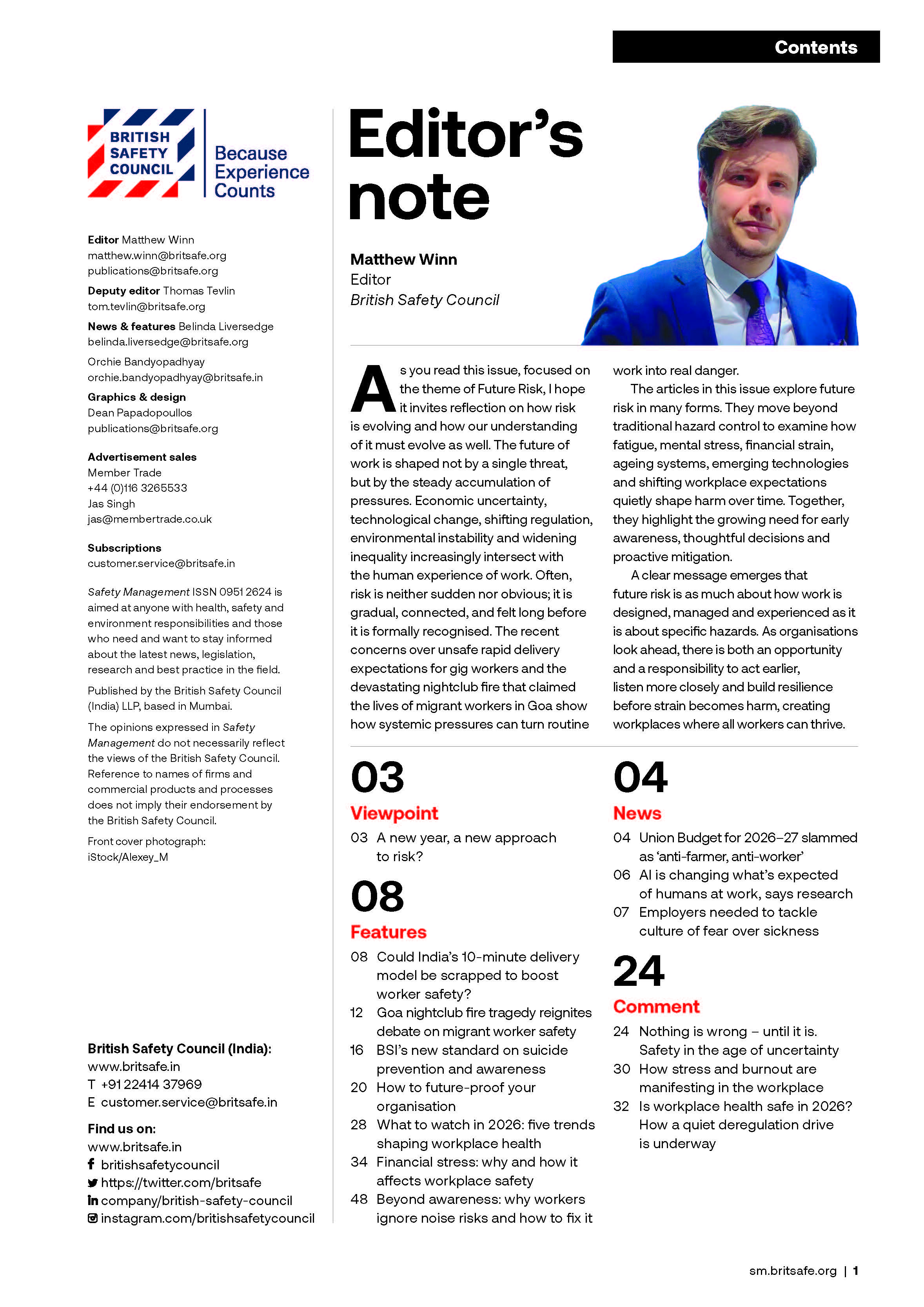Many Indian women are entitled to maternity leave and are protected from dismissal while taking it, but the rights do not extend to all workers, and regularly have to be fought for through the courts.
Features
Pregnant but not protected
Entitlement to paid leave during various stages of pregnancy and after the child’s birth is a globally accepted right for all women workers. It is also seen as a supportive mechanism for breastfeeding the new born, which is critical for child nutrition and wellbeing. However, the legislative framework for ensuring maternity benefits for working women in India is currently very weak.
In 2017, the country passed the Maternity (Amendment) Act that requires most employers to offer a generous 26 weeks of paid maternity leave along with a crèche facility at work.
Also, in June 2021, the Union government advised states to allow women to work from home for at least six months after they have completed their 26-week period of maternity leave. The authorities argued this would help improve the country’s dismal rate of female participation in the labour force, and bring health benefits to the workers concerned. However, although the extension of paid maternity leave through the 2017 Act was undoubtedly well intentioned, it is clear that many new and expectant working mothers in India are not being granted their maternity leave rights and are being treated unfairly at work simply because they are either pregnant or have recently given birth.
 Photograph: iStock/Kachura Oleg
Photograph: iStock/Kachura Oleg
Dismissed for taking time off
Take the case of an Anganwadi worker at a government-sponsored mother and childcare centre, who was sacked for taking seven months leave during her pregnancy. However, she took her case to Madras High Court, which ruled in November 2021 that maternity rights must not be infringed and directed the authorities to reinstate her.
The High Court heard that the woman, known as K.R. Kanimozhi, was appointed in 2011 to a job at an Anganwadi centre in the Sivaganga district of Tamil Nadu.
After being childless for over 11 years, she conceived through in vitro fertilisation (IVF) and faced a difficult pregnancy. Due to this, she was absent from work for seven months and 11 days between 2013 and 2014.
When she was pregnant, she submitted a letter to her employer seeking leave and subsequently sought to extend her leave.
However, her government-run employer issued a ‘show-cause’ notice asking why she had been absent for more than six months. In 2014, her contract of employment was terminated and she was dismissed, with the employer arguing that the maximum leave period she was entitled to was six months, in line with a government order (GO) passed by the Social Welfare and Nutritious Meal Programme department in 1995.
The woman filed two petitions before the Madurai Bench of the Madras High Court in 2014 challenging the termination order and seeking reinstatement to her job with monetary benefits.
Hearing her petition in 2021, Justice S Srimathy said that the GO in question did not conform with the statutory provisions of the Maternity Benefit Act, 1961. “Maternity Benefit Act, 1961, is a Central Act that provides 12 weeks leave before and after childbirth. It was later extended to 26 weeks through an amendment in 2017,” she said.
Pointing out that the petitioner was eligible for three months statutory leave under the Maternity Benefit Act during the relevant time, the judge ruled the authorities should not have included the three months while calculating the woman’s total leave period. “If the three-month period was deducted, the petitioner had taken leave for only four months and 11 days, and had not exceeded the six-month period stated in the GO,” the judge added. She overturned the employer’s decision to terminate the woman’s employment and ordered them to reinstate her immediately.
In another ruling, the Delhi High Court stated that the Maternity Benefit Act is a beneficial law designed to safeguard the rights of pregnant women. It made these comments while dismissing a petition filed by an educational institute that had coerced one of its female professors into delivering online classes to students while she was on maternity leave. The Delhi government labour department had subsequently ordered the educational institute to compensate the professor, and the educational institute’s attempt to have this payment overturned was thrown out by Delhi High Court.
“The provisions of the Act have to be given effect to in letter and spirit. Technical issues would not come in the way of the court or the authority concerned, in recognising the said benefits,” stated Justice Prathiba M Singh, when commenting on the case.
Indian Air Force ruling on dismissal
Meanwhile, in December 2021, the Indian Air Force (IAF) agreed to postpone its decision to discharge a squadron leader from its flying branch on medical grounds while she was on maternity leave after a military court intervened in the case.
The officer, Anju Gehlot, had given birth to a premature baby in November 2021 and was on maternity leave until 11 March 2022. Previously, she had developed a medical condition which meant she was unfit to fly, and the AIF had agreed to allocate her to ground duties instead. However, instead of allowing her to continue with the ground duties, the IAF moved to have her discharged from the air force on medical grounds on 23 December 2021 – despite the fact she was on maternity leave at the time.
The officer appealed to the Armed Forces Tribunal, a military court, which ordered the IAF to not release her from her post until the end of her maternity leave on 11 March 2022, as women employees cannot be discharged while they are on maternity leave.
“In accordance with leave rules, Air Force women officers are entitled to six months’ maternity leave as a matter of right pre/post-delivery of child, which has also been upheld by the Supreme Court,” said the woman’s lawyer, Colonel IS Singh (retired).
The law ‘is a token gesture’
When the country passed the Maternity (Amendment) Act 2017 that increased the right to paid maternity leave for working women from 12 weeks to 26 weeks – the third highest in the world – many believed that working mothers-to-be would have better maternity leave and associated protections than most women in the developed world. However, in reality the laws seem to be in part a token gesture as only women employed in a company with at least 10 employees are entitled to paid maternity leave, meaning huge numbers of women who work in small enterprises and informal sectors like agriculture miss out.
Pradhan Mantri Matru Vandana Yojana maternity benefit
The only entitlement currently available for all women is from the Pradhan Mantri Matru Vandana Yojana (PMMVY), where a “cash incentive of Rs 5,000 is provided directly to the bank/post office account of pregnant women and new mothers for the first living child of the family (subject to fulfilling specific conditions relating to maternal and child health)”. This payment is designed to enable pregnant women and new mothers to take time away from work during childbirth and afterwards to protect the health and nutrition of themselves and their baby. It compensates them for any potential loss of wages, particularly in the unorganised sectors. It is also designed to enable the mother to boost her nutrition during and after pregnancy (therefore boosting the baby’s health and avoiding the birth of undernourished children), and to help expectant mothers to access safe birth delivery services, by providing financial assistance.
However, the performance of the scheme has been inadequate, and many commentators argue that it needs urgent improvement, especially as the pandemic has resulted in economic shocks for the 2.6 million women who give birth annually in India.
Meanwhile, recent research found that a large majority of Indian women are still being deprived of maternity benefits they are entitled to under the National Food Security Act 2013. The Act provides certain pregnant women and breastfeeding mothers with maternity benefit payments, and entitles them to certain free food benefits.
The research – from economists Jean Dreze, Reetike Khera and Anmol Somanchi – is based on the findings of the Jaccha Baccha Survey (JABS), a survey of pregnant and nursing women in rural India conducted in June 2019. The survey, which was conducted by student volunteers, took place in six states, Chhattisgarh, Himachal Pradesh, Jharkhand, Madhya Pradesh, Odisha and Uttar Pradesh. It involved interviews with many pregnant and nursing women registered at the Anganwadis.
The paper also points out that India’s Maternity Benefit (Amendment) Act in 2017 effectively applies to only a tiny fraction of women workers – mainly those employed in the formal, organised sector. It said: “In fact, that law has been used to create a misleading perception, in some international forums, that India has some of the most generous maternity leave provisions in the world. Some women are more equal than others in this respect: relatively privileged women get maternity benefits based on the wage compensation principle (as they should), but the most disadvantaged are entitled to measly amounts. This stark asymmetry is barely noticed.”
According to the Jaccha Baccha Survey, the average weight gain reported by nursing women over nine months of pregnancy was barely 7kg in the sample as a whole. This indicates that poor diets contribute to low weight gain during pregnancy.
Pregnant and nursing women are acutely deprived of quality healthcare, according to the paper. Many of them receive some elementary services such as tetanus injections and iron tablets at the local Anganwadi or health centre, but they get very little beyond these elementary benefits. “Small ailments easily become a major burden, in terms of pain or expenses or both,” said the paper. “At the time of delivery, women are often sent to private hospitals when there are complications.”
The paper concluded: “The provision for universal maternity entitlements in India’s National Food Security Act 2013 is a historic move but its significance, it seems, was lost on the Indian government as well as on the public.”
FEATURES

Turning sustainability compliance into business opportunity
By on 27 February 2026
Businesses that publicly demonstrate good sustainability performance can reap financial, reputational and other benefits, but it’s important to minimise the cost of any reporting on sustainability issues and to focus efforts on improving aspects of sustainability where the benefits outweigh the costs.

India’s 10-minute delivery model: why working conditions could be about to improve
By Orchie Bandyopadhyay on 13 February 2026
India’s ‘10-minute’ quick-commerce home delivery model has been criticised for allegedly encouraging reckless riding by delivery workers, but the Government has now reportedly stepped in to urge the app platforms to abandon the time-bound delivery promise and do more to ensure the safety of the sector’s workers.

Migrant workers: Goa fire tragedy reignites debate on poor safety protections
By Orchie Bandyopadhyay on 13 February 2026
A deadly fire at a nightclub in Goa that claimed the lives of 20 migrant workers from across India made global headlines – and triggered fresh demands for government agencies to step up efforts to ensure the safety of low-paid workers in environments such as bars, nightclubs and hotels.



